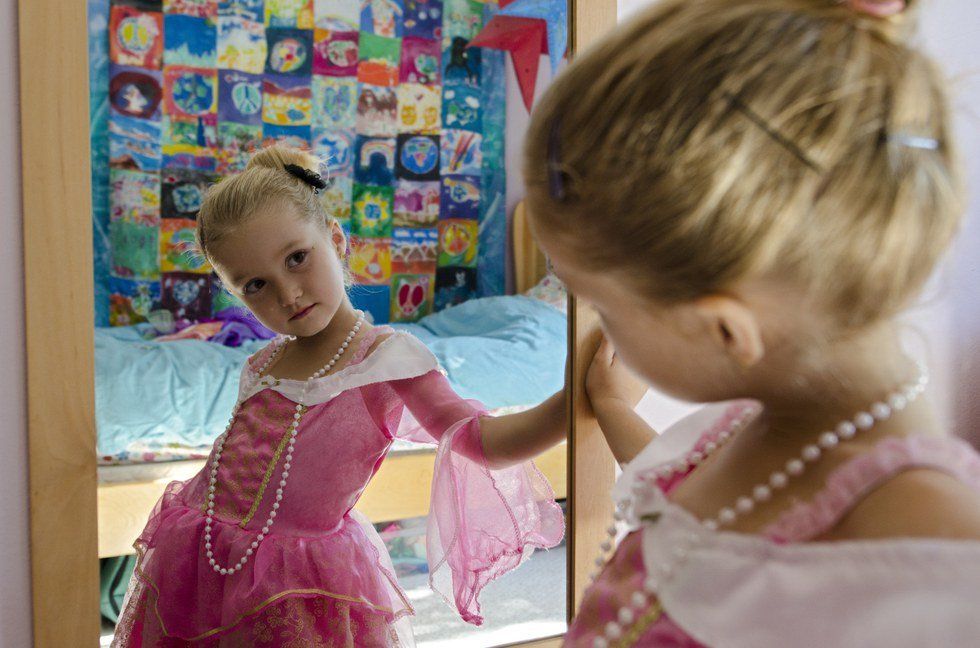I stood in line behind a busy mother and her two children, a boy of 10 and a little girl around six. The boy was tall and lanky, wearing a baggy soccer uniform with cleats and shin guards, and he stood quietly by his mother. The girl moved side-to-side watching her pink dress twirl, holding her mother’s hand. She was small with big cheeks and a bit of a tummy. The mother seemed stressed. She wore a Lululemon athletic suit with sunglasses that pushed back her highlighted hair. She struggled to clutch her handbag and talk on the phone that was held between her cheek and shoulder.
“I’ll call you back, we have to order.” As the customer before them ordered, she knelt down slightly, and read the “kids menu” to her children, who both decided on grilled cheese. It was their turn at the register; the mother ordered the food as her children eyed the wrapped cookies on the counter. The boy found one with M&Ms and held it up to his mother. “Mom, can I have this?” The mother sighed, but gave in.
“Sure, honey, that’s fine.”
“Mommy, can I have this one?” The little girl tugged on her mother’s hand, presenting a brownie.
“Not today sweetie,” she said as she handed the cashier her credit card.
“But Chase got a cookie!” she protested.
I quickly placed my order, and then followed behind the family as I waited for my food. I listened to the mother explain calories to her six-year-old. “Calories are the amount of energy in food, but having a lot of calories isn’t good for you if you don’t use the energy. Cookies and brownies have a lot of calories and they aren’t very healthy.”
Her daughter looked puzzled and couldn’t care less about calories, “Why does Chase get one?” The mother bent lower to her daughter and spoke quietly.
“I’m letting your brother have a cookie because he used a lot of energy in his soccer game today. You and I don’t get a dessert because we haven’t used as much energy, today. If we ate sweets all the time without exercise we would get big. We don’t want that tummy to get any bigger, right?” she said as she poked her daughter’s belly. Her daughter looked down at her stomach and the protesting ended.
In this brief interaction, the mother taught her young daughter that, because she had a tummy, her body was flawed. She implied that this flaw should be fixed, not encouraged with more calories, and that being “big” is shameful. She taught her daughter that those who are skinny, like her brother, are rewarded. I could not believe that a mother would say such harmful words to her young daughter. It is depressing that in our society, kindergarteners are taught and encouraged to dislike their bodies through media, let alone parents and role models. Though these interactions may appear innocent, their messages encourage low self-esteem as well eating disorders and self-hatred.
To the mom at Panera,
I know that you parented your daughter with good intentions. You believed that through your actions your daughter would learn the importance of health and healthy habits. Perhaps you were unaware of the long-term effects a conversation can have on your daughter and her self-image. Or perhaps you believed that drawing attention to her “flaws” would scare or embarrass her into healthy habits. Do not teach your children that their bodies are flawed and need improvement. Don’t make them ashamed of so-called imperfections. Strive to teach your daughter to love and appreciate her body as well as others different from hers.





















